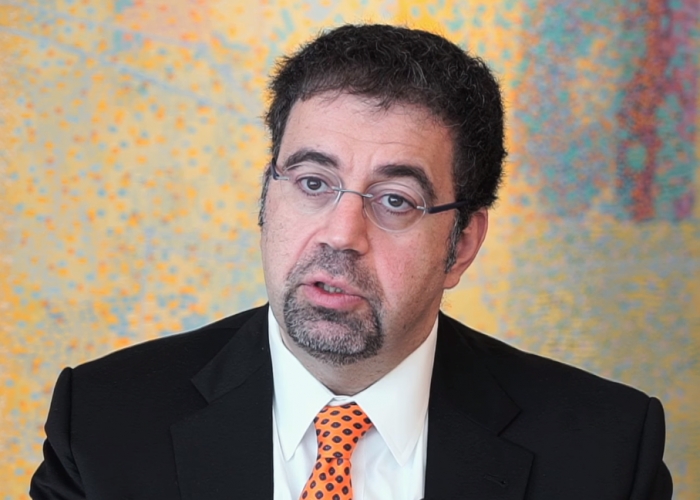Even if the feared extremist wave did not quite materialize in the European Parliament election this month, the far right performed well in Italy, Austria, Germany, and especially France. Moreover, its latest gains have come on the heels of major shifts toward far-right parties in Hungary, Italy, Austria, the Netherlands, and Sweden, among others.
In France, the resounding victory for Marine Le Pen’s National Rally (previously the National Front) cannot be dismissed as a mere protest vote. The party already controls many local governments, and its success this month has induced President Emmanuel Macron to call early elections – a gamble that could give it a parliamentary majority.
At some level, there is nothing new here. We already knew that democracy was increasingly strained around the world, with intensifying challengesfrom authoritarian parties. Surveys show that a growing share of the population is losing confidence in democratic institutions. Nevertheless, the far right’s inroads with younger voters are particularly worrying. No one can now deny that this latest election was a wake-up call. But unless we understand the root causes of the trend, efforts to protect democracy against institutional collapse and extremism are unlikely to succeed.
The simple explanation for the crisis of democracy across the industrialized world is that the system’s performance has fallen short of what it promised. In the United States, real (inflation-adjusted) incomes at the bottom and the middle of the distribution have hardly increased since 1980, and elected politicians have done little about it. Similarly, in much of Europe, economic growth has been lackluster, especially since 2008. Even if youth unemployment has declined recently, it has long been a major economic issue in France and several other European countries.
The Western model of liberal democracy was supposed to deliver jobs, stability, and high-quality public goods. While it mostly succeeded following World War II, it has fallen short on almost every count since around 1980. Policymakers from both the left and the right continued touting policies designed by experts and administered by highly qualified technocrats. But these not only failed to deliver shared prosperity; they also created the conditions for the 2008 financial crisis, which stripped away any remaining veneer of success. Most voters concluded that politicians cared more about bankers than workers.
My own work with Nicolás Ajzenman, Cevat Giray Aksoy, Martin Fiszbein, and Carlos Molina shows that voters tend to support democratic institutions when they have direct experience of democracies delivering economic growth, noncorrupt government, social and economic stability, public services, and low inequality. It therefore comes as no surprise that a failure to satisfy these conditions would result in a loss of support.
Moreover, even when democratic leaders have focused on policies that would contribute to better living conditions for most of the population, they have not done a good job of communicating effectively with the public. For example, pension reform is obviously needed to put France on a more sustainable growth path, but Macron failed to secure public buy-in for his proposed solution.
Democratic leaders have increasingly lost touch with the population’s deeper concerns. In the French case, this partly reflects Macron’s imperious leadership style. But it also reflects a broader decline of trust in institutions, as well as the role of social media and other communication technologies in promoting polarizing positions (on both the left and the right) and pushing much of the population into ideological echo chambers.
Policymakers and mainstream politicians were also somewhat tone deaf to the kinds of economic and cultural turbulence that large-scale immigration brings. In Europe, a significant share of the population expressed concerns about mass immigration from the Middle East over the past decade, but centrist politicians (particularly center-left leaders) were slow to engage with the issue. That created a big opportunity for fringe anti-immigration parties like the Sweden Democrats and the Dutch Party for Freedom, which have since become formal or informal coalition partners for ruling parties.
The challenges hampering shared prosperity in the industrialized world will become even more of an issue in the age of AI and automation – and this at a time when climate change, pandemics, mass immigration, and various threats to regional and global peace are all growing concerns.
But democracy is still best equipped to deal with these issues. Historical and current evidence make it clear that non-democratic regimes are less responsive to the needs of their population, and less effective at helping disadvantaged citizens. Whatever the Chinese model might promise, the evidence shows that non-democratic regimes ultimately reduce growth in the long term.
Nonetheless, democratic institutions and political leaders will need to make a renewed commitment to building a fair economy. That means prioritizing workers and ordinary citizens over multinationals, banks, and global concerns, and fostering trust in the right kind of technocracy. It will not do to have aloof officials imposing policies in the interest of global companies. To address climate change, unemployment, inequality, AI, and the disruptions of globalization, democracies need to blend expertise with public support.
This will not be easy, because many voters have come to distrust centrist parties. Even though the hard left – as represented by Jean-Luc Mélenchon in France – has greater credibility than mainstream politicians in terms of its commitment to working people and independence from banking and global business interests, it is unclear whether left-wing populist policies would truly deliver the economy that voters want.
This suggests one way forward for centrist parties. They can start with a manifesto that rejects blind allegiance to global business and unregulated globalization, and offers a clear, workable plan for combining economic growth with lower inequality. They also should strike a closer balance between openness and allowing for reasonable limits on migration.
If enough French voters support pro-democracy parties against National Rally in the parliamentary election’s second round, Macron’s gamble may well work. But even if it does, business as usual cannot continue. For democracy to regain the public’s support and trust, it needs to become more pro-worker and egalitarian.
Project Syndicate


































































